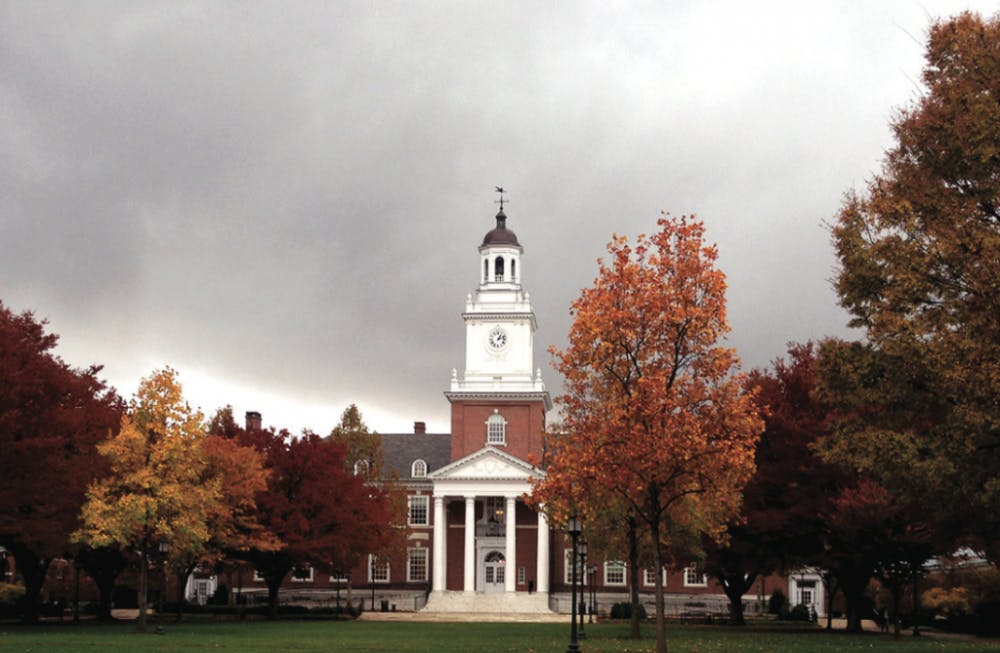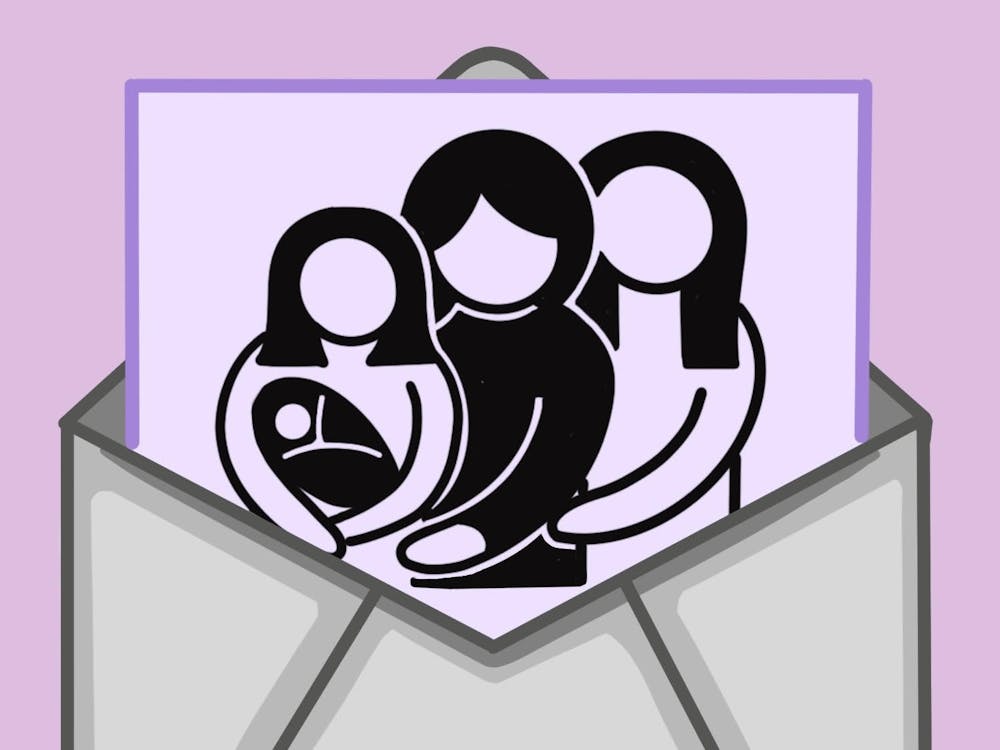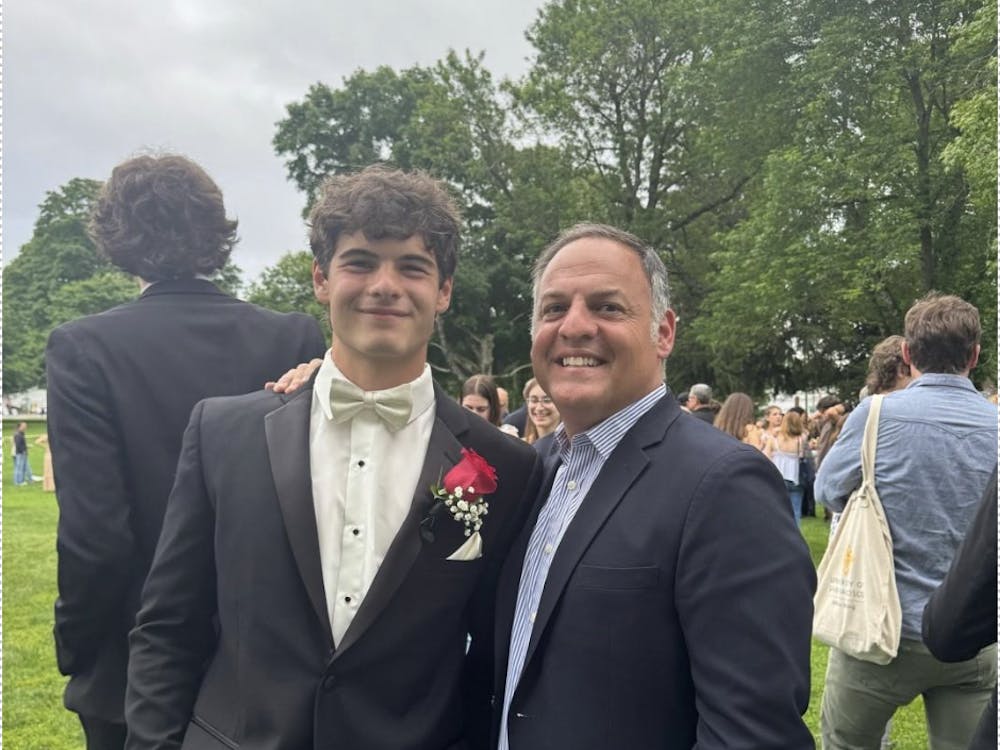From study spots to moral support, these tips for humanities lovers have your needs completely covered
Cozy up and caffeinate in Gilman Hall. If you bump into any humanities major – or any major at Hopkins, actually – they’ll tell you that Gilman Hall, the oldest building on campus and home to the humanities, is the perfect quiet study spot. Grab a coffee or fresh baked good at Café Alkimia and either take a seat in the brightly lit atrium with its futuristic ceiling lights or snuggle up in the huge leather chairs of the HUT as the spirits of old Renaissance men immortalized in the tall stained-glass windows watch over you.
Baltimore bookstores are your best friend. Our bustling city has a serious history. If you dare to venture outside of the Hopkins bubble (and you should), you’ll find yourself stumbling across treasure troves of books scattered throughout the city. Red Emma’s, a self-described “radical bookstore, vegan/vegetarian restaurant and coffee roaster” contains a wealth of books you wouldn’t find at your average Barnes & Noble, many of which explore of sex, race, economy, and politics in ways you wouldn’t imagine. Charlotte Elliott & The Bookstore Next Door also has lots of cool antiques, used books and hidden gems for your book collection and dorm room. Expand your humanistic horizons!
Prepare to be independent in your schoolwork. One thing you’ll notice within your first few weeks on campus is that the STEM majors are very collaborative. When your friends taking calculus and orgo can talk and work together on problem sets in Brody, don’t be dismayed if you find yourself having to put in some headphones and do all the reading and writing assigned for your humanities classes on your own. This is a uniquely humanities struggle. Take joy in the fact that you can still work around them, but accept that you’ll probably be off in a world of your own, because reading articles and books and writing essays are independent activities.
Take advantage of small class sizes. Unlike the huge intro classes for the sciences or mathematics, classes in the humanities almost always have less than 20 people in them, which forces you to participate in class discussions. Your professor will even call on you by name, because most language classes and introductory humanities classes have only 18 people in them! If you’ve always been a shy student, speak up in class. Analyze that metaphor, voice your opinion about the implications of this piece of text, or that bit of evidence. And for the love of god, go to office hours. Meeting with your professor and putting in that effort will make a huge difference in how you perform on essays and tests.
Don’t just read. We’ve all heard it before from our high school English teacher: Engage with the text and be an active reader! If you were the student who cruised through high school with minimal effort, you can’t pull that off in college. When you’re sleep-deprived, bogged down with work and have extracurriculars in the back of your mind, it’s so easy to “read” a couple pages of your assignment and realize you haven’t truly digested any of the material. But you’ll soon learn that most of what you learn is done outside of class. Highlight, take notes, scribble in the margins, do anything to make sure your mind is at 100 percent when you’re reading for class.
Revel in the fact that you won’t have as many exams. The humanities are about essays on essays on essays, baby. When your other friends are crying because they have to relearn all the material from their course during reading period, take comfort in the fact that you can set your own schedule. Caffeinate, hole up in a nice cubicle on B-Level of Brody,and start banging out that 6 page essay on Plato’s Republic.
Always remember that a humanities education still has value in our data-driven world. To quote Robin Williams in the movie Dead Poets Society, “We don’t read and write poetry because it’s cute. We read and write poetry because we are members of the human race. And the human race is filled with passion. And medicine, law, business, engineering, these are noble pursuits and necessary to sustain life. But poetry, beauty, romance, love, these are what we stay alive for.”
An education in the humanities will not teach you how to organize your life in numbers, theorems and productivity, but it will teach you the beauty of seeing life as something undiscoverable and uncategorizable. In higher education’s pursuit of bringing depth and enrichment into our lives, the humanities will never stop short.





